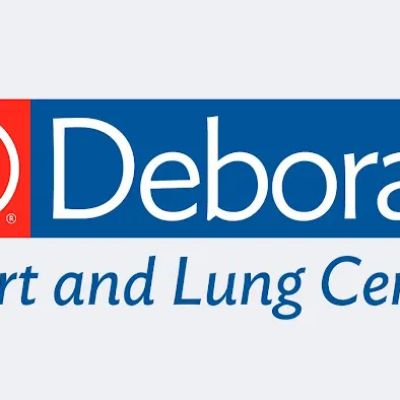Foods That Lower Cholesterol for Heart Disease Prevention
- Introduction to Heart Disease and Cholesterol
- Key Foods That Lower Cholesterol
- The Role of Healthy Fats
- Practical Tips for Incorporating These Foods
- Real-Life Case Study
- Why Consider Cholesterol-Lowering Supplements?
Introduction to Heart Disease and Cholesterol
Heart disease remains one of the leading causes of death worldwide, but the good news is that it can often be prevented or managed through lifestyle changes, particularly in what we eat. High cholesterol is one of the major risk factors for developing heart disease. It's important to understand how certain foods can help lower cholesterol levels and improve heart health.
Key Foods That Lower Cholesterol
When it comes to lowering cholesterol, there are several types of foods you should prioritize in your diet. These foods help manage cholesterol levels and reduce the risk of heart disease.

1. Oats and Whole Grains
Oats are rich in soluble fiber, which helps lower LDL ("bad") cholesterol levels by binding to it and removing it from the body. Starting your day with a bowl of oatmeal or including whole grains like barley and quinoa in your meals is a simple yet effective way to support heart health.
Atlanta Heart Specialists
atlanta heart specialists
4375 Johns Creek Pkwy #350, Suwanee, GA 30024, USA

2. Fatty Fish
Fish such as salmon, mackerel, and sardines are rich in omega-3 fatty acids, which are known for their ability to lower triglycerides and improve overall heart health. Omega-3s also reduce inflammation, which is another risk factor for heart disease.
3. Nuts and Seeds
Almonds, walnuts, flaxseeds, and chia seeds are all excellent sources of heart-healthy fats and fiber. These foods can help lower LDL cholesterol and improve your cholesterol ratio, which is vital for heart disease prevention.
4. Fruits and Vegetables
Berries, apples, and leafy greens like spinach and kale are packed with antioxidants, fiber, and other nutrients that promote heart health. These foods not only lower cholesterol but also fight inflammation and reduce the risk of heart disease.
The Role of Healthy Fats
Contrary to popular belief, not all fats are harmful. In fact, some fats can actually help improve your cholesterol levels. Incorporating healthy fats into your diet is key to supporting heart health and reducing your risk of cardiovascular disease.
1. Avocados
Avocados are rich in monounsaturated fats, which have been shown to lower LDL cholesterol levels. Additionally, they are packed with potassium, which helps manage blood pressure, another important factor in heart health.
2. Olive Oil
Olive oil, especially extra virgin olive oil, is an excellent source of monounsaturated fats. Studies have shown that olive oil can help reduce bad cholesterol levels while increasing the levels of good cholesterol (HDL).
3. Coconut Oil (in moderation)
While coconut oil is high in saturated fat, it contains medium-chain triglycerides (MCTs), which may have a less harmful effect on cholesterol levels compared to other sources of saturated fat. When used sparingly, coconut oil can be a heart-healthy choice.
Practical Tips for Incorporating These Foods
It's one thing to know which foods are good for your heart, but it's another thing to make sure you're actually eating them regularly. Here are some tips to help you incorporate heart-healthy foods into your daily routine:
1. Start Your Day with Oats
Begin your morning with a hearty bowl of oatmeal or overnight oats. You can add fruit, chia seeds, and nuts for extra heart health benefits. It’s an easy and delicious way to start your day.
2. Snack on Nuts and Seeds
Keep a small handful of almonds or walnuts with you as a snack throughout the day. They're easy to carry, and they help curb hunger while boosting your heart health.
3. Add Fatty Fish to Your Meals
Aim to include fatty fish like salmon or sardines in your diet at least twice a week. Whether grilled, baked, or added to a salad, they make for a nutritious and heart-healthy addition to any meal.
Real-Life Case Study
Meet Sarah, a 45-year-old woman who was diagnosed with high cholesterol. After working with her doctor and dietitian, Sarah made significant changes to her diet. By incorporating more whole grains, fatty fish, nuts, and vegetables, Sarah was able to lower her LDL cholesterol levels by 20% in just six months. Her story is a testament to how powerful food can be when it comes to heart disease prevention.
Why Consider Cholesterol-Lowering Supplements?
While a healthy diet is essential, sometimes it's not always enough to meet your cholesterol-lowering goals. This is where cholesterol-lowering supplements can be beneficial. Supplements like plant sterols, omega-3 fish oil, and soluble fiber can further support your heart health. If you’re looking for additional help in managing cholesterol, consider exploring high-quality supplements designed for heart health.
Remember, always consult with your healthcare provider before starting any new supplements to ensure they align with your specific health needs.





















Deborah Heart and Lung Center
deborah heart and lung center
200 Trenton Rd, Browns Mills, NJ 08015, USA